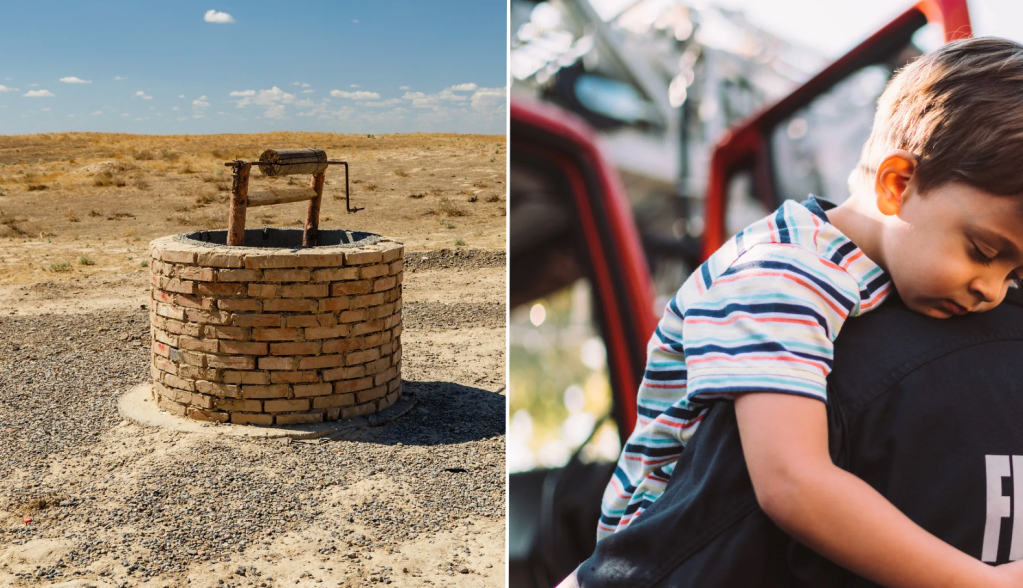After more than a decade of delicious craft-beer-making, Magic Hat Brewery had grown into a major operation.
They got so big, in fact, that they … actually couldn’t get any bigger.
By 2007, Magic Hat was making more than 3.3 million gallons of beer a year. More than 90% of that final product was water, which was a major problem for the town of South Burlington, Vermont. (And that’s not even counting the water used in cleaning and other aspects of production, too.)
As it was, the brewery’s water bills were costing them about $200,000 a year, and the treatment facilities in their hometown were already working at full capacity. They wanted to start making more beer. But if they did, there wouldn’t be any water left for the city’s 18,000 residents.
Inside the “Artifactory” at the Magic Hat Brewery in South Burlington, Vermont. All photos by Thom Dunn/Upworthy, unless otherwise specified.
The brewery owners thought about building their own water treatment plant right at their brewery. But then a better idea presented itself.
PurposeEnergy, a small start-up founded by an MIT graduate named Eric Fitch, approached Magic Hat and offered to solve their water problem.
Fitch had been working on a prototype for what he called the “tribrid bioreactor.” It was a hybrid of three different digester systems that would not only clean a brewery’s wastewater, but also convert the biosolid waste (which is organic material such as spent grains, hops, and trub) into electricity.
Fitch had been looking for a place to put his prototype into action. Magic Hat was looking for ways to expand without ruining the city’s water supply. It was a match made in Hop Heaven.
Converting their leftover beer parts into sustainable electricity? That was just an added bonus.
Hasper Kuno of PurposeEnergy inside the company’s biogas generator at the Magic Hat Brewery.
How does something called a tribrid bioreactor work, exactly?
Basically, like this:
Image courtesy of Magic Hat Brewery and PurposeEnergy, used with permission.
“We basically allow Magic Hat to keep on expanding their production and not really be a burden on the local town,” explained Hasper Kuno, who oversees PurposeEnergy’s facility in South Burlington.
“What we send down the drain here, it’s literally cleaner than your typical household. And also we’re producing electricity on it, so it’s a no-brainer.”
The thin black sludge on the left is how digested beer waste looks coming out of the digester; the clear cup on the right is how it looks after it’s gone through the system’s water clarifier.
According to Kuno, PurposeEnergy’s tribrid bioreactor system can convert 93% of the brewery’s waste into biogas and then electricity, allowing them to produce up to 220 kilowatts of energy daily — enough to power more than 200 average-size homes. Over the last five years, they’ve cumulatively produced more than 2.4 gigawatts of energy — which is twice as much as it took Doc Brown to power the Flux Capacitor that sent his beloved DeLorean back in time in “Back to the Future.” So that’s a lot.
“As far as we know, this is the most efficient digester in the world,” Kuno said.
Oh, and that leftover 7% of waste that doesn’t get converted into energy? It’s still rich enough in nutrients to work as a hyper-concentrated fertilizer, which PurposeEnergy gives away to local farms — that is, when they’re not using it as a soil substitute to grow their own hops.
Hops growing up the side of the water treatment tank behind the Magic Hat Brewery — with no actual soil, just a plant bed of leftover biowaste. So far, the hops are only being used for homebrewing, not commercial beer.
Since 2010, several other major U.S. breweries have adopted PurposeEnergy’s epically sustainable brewing system too.
The bioreactor at Delaware’s Dogfish Head Brewery is twice the size of the one at Magic Hat. The 1 million gallon system was built in 2014, and it has enabled the brewery to reduce its overall water consumption by more than half.
And in March 2016, PurposeEnergy broke ground on another new facility at Kona Brewing Company in Hawaii.
Kuno believes that big breweries will eventually hop on board with this trend, too. Companies like Molson Coors already have their own water treatment facilities on-premises, but the systems at those breweries have a life span of around 50 years.
“When that time is up, then we’ll come in and get them a new digester,” Kuno said.
“No parking” because this is where the burn-off from the gas-to-energy conversion happens — meaning that big copper pipe sometimes shoots out fireballs, which are much less tasty than beer.
The best part about this whole thing? This sustainability system isn’t limited to just beer.
As long as there’s some kind of organic waste in a system, the bioreactor can convert it into energy.
“We’ve got a couple of dairies that we’re hoping to install some systems,” Kuno said. “Acid whey makes a lot of electricity, and that’s the byproduct of Greek yogurt, which is huge right now.”
If a brewery could power an entire neighborhood with just its own beer, who knows what other amazing ways we can find to make our world more sustainable?

























